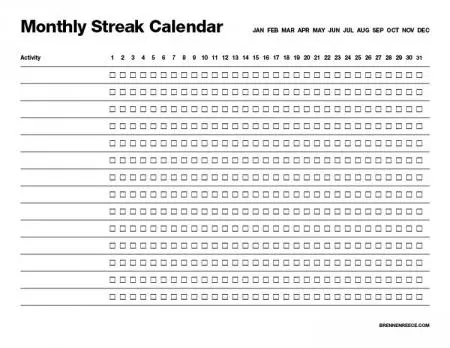I like the idea of productivity tips and guides. I read up on them a lot, but I'm usually disappointed in them. They don't translate well to reality; they're usually vague and bland, except for some classic tips like:
- Set a specific time aside for writing/Write first thing in the morning.
- Write with the door closed; ask your loved ones not to bother you.
- Hold yourself accountable. Announce your writing goals and deadlines, even if it's just to one person.
I'm gonna try however, to illustrate a few techniques that should help squeeze some words out of you, even on those days when you find it really hard to sit down and stare at the blank page.
First up, a classic productivity method, adapted for writing.
The Pomodoro Technique
A time management technique developed by Francesco Cirillo. It breaks down work in chunks of 25 minutes, with short (three to five minutes) breaks between each one. These chunks are called pomodori. After four or five of them, you can take a longer break (15 to 20 minutes). There are other variations, but this is my preferred one. Use the breaks to get up, stretch and walk around for a bit, get more coffee. I don't recommend firing up Twitter or checking your email, it might end up distracting you from your next pomodoro.
If it's not obvious, the method hinges on the fact that it's much easier to commit and focus on a task for short periods of time, rather than on more loosely defined (I have to write a story, I have to write for three hours today) tasks. You can use a kitchen timer, one of the online pomodoro timers or just the google timer set to 25 minutes.
Figure out your average word count per pomodoro and you'll have a good idea of how to manage your time according to your goals. A couple of pomodori should be enough for a blog post or that flash fiction piece you've been meaning to write.
You're probably wondering: Why pomodoro? Cirillo used a kitchen timer shaped like a tomato (pomodoro in Italian) to measure his intervals.
Tip for the lazy:
If you're struggling to write daily, here's my tip: Force yourself to do at least one pomodoro each day. Nobody is so busy that they don't have 25 minutes to themselves. I can usually knock out roughly 1000 words in 25 minutes (not good words, mind you, but readable words all the same). A thousand words a day, thirty days a month, that's one third of a novel right there. And that's on easy mode.
Word Wars
A novelty, perhaps, but it has been really helpful to me in the past. It works like this: You partner up with another writer (or more), agree on when and for how long you're gonna write. You can do it over Skype, in person, or just an email.
The point is to sit down at a particular time and write for say, one or two hours, as fast as you can, no editing or second guessing.
Despite the name, this isn't really a competition. It's just a variation of the above method: You're looking for an incentive that will help you focus your mind for a few hours and get something on the page. Doing it as a group helps a lot with that, plus you're accountable to someone. It's easy to break promises to yourself.
Tip for the lazy:
Just do a word war whenever you meet up or chat with a writer. Convince them to sit down for half an hour and write something
Seinfeld's Monthly Streak
My friend Brennen Reece (design guru and all around great guy) turned me on to this really cool idea. I've been trying to use weekly and monthly planners with limited success. Scribbling ''Write today'' on a piece of paper didn't do much for my output. I saw Brennen's blog post and it was more or less exactly what I had been stumbling in the dark for.
Brad Isaac, via Lifehacker:
[Jerry Seinfeld] told me to get a big wall calendar that has a whole year on one page and hang it on a prominent wall. The next step was to get a big red magic marker.
He said for each day that I do my task of writing, I get to put a big red X over that day. "After a few days you'll have a chain. Just keep at it and the chain will grow longer every day. You'll like seeing that chain, especially when you get a few weeks under your belt. Your only job next is to not break the chain."
The simplicity is what makes it. Just set your goal to something like ''Write anything today'' or ''Write 1000 words'' and start your chain. You might have a few false starts, but if you can make it a few weeks in, you'll have a really strong incentive to keep going. It's going to feel terrible to break that two month long chain just because you're too lazy to write a page or two.
You can easily combine it with my Pomodori trick above to help you through those tough days when writing is hard and life sucks. A chain of daily pomodori. Just look at all those beautiful Xs. You don't want to break the chain, do you?
Brennen made a fancy calendar specifically for this method, which you can grab here and then print out and stick to your wall.
Tip for the lazy:
Do a week at the time, then take a break for x number of days. That kinda goes against the philosophy of the whole thing, but hey, if you're busy with family time and a day job, even a week of daily writing can be a victory. Realistically however, a pomodoro per day should be doable for the vast majority of people. Commit.
In closing
The important thing is to get words down on the page. These are the methods that have worked reliably for me. I'm sure there are others. I'd love to hear of any that worked for you. Let me know in the comments.
Now go write.

About the author
George Cotronis lives in the wilderness of Northern Sweden. He designs book covers and sometimes writes. His stories have appeared in XIII, Big Pulp and Vignettes from the End of the World. He is also the editor in chief at Kraken Press and Aghast: A Journal of the Darkly Fantastic. You can see his work at www.ravenkult.com or read his rants over at his blog.










